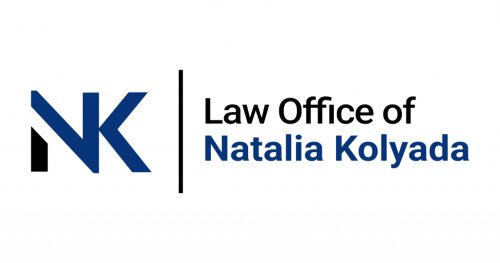Best Child Visitation Lawyers in Boston
Share your needs with us, get contacted by law firms.
Free. Takes 2 min.
Free Guide to Hiring a Family Lawyer
List of the best lawyers in Boston, United States
About Child Visitation Law in Boston, United States:
Child visitation laws in Boston, United States govern the rights of non-custodial parents to spend time with their children. These laws are intended to ensure that both parents have the opportunity to maintain a relationship with their children following a divorce or separation.
Why You May Need a Lawyer:
There are several situations where you may need a lawyer to assist with child visitation matters. Some common reasons include disputes over visitation schedules, concerns about the safety and well-being of the child during visitation, or if you believe that the other parent is not following the court-ordered visitation agreement.
Local Laws Overview:
In Boston, United States, child visitation laws prioritize the best interests of the child. The court may consider factors such as the relationship between the child and each parent, the ability of each parent to provide a stable and nurturing environment, and any history of abuse or neglect. It is important to adhere to the visitation schedule outlined in the court order to avoid potential legal issues.
Frequently Asked Questions:
1. Can I request changes to the visitation schedule?
Yes, you can request changes to the visitation schedule, but it is recommended to consult with a lawyer to ensure that your request aligns with the best interests of the child and complies with the court order.
2. What can I do if the other parent is not following the visitation agreement?
If the other parent is not following the visitation agreement, you may need to seek legal assistance to enforce the court order. Document any instances of non-compliance and consult with a lawyer for guidance on how to proceed.
3. Can grandparents or other relatives request visitation rights?
In some cases, grandparents or other relatives may be granted visitation rights if it is deemed to be in the best interests of the child. Consult with a lawyer to understand the legal options available in such situations.
4. What factors do courts consider when determining visitation rights?
Courts consider various factors such as the child's relationship with each parent, the ability of each parent to provide a stable environment, any history of abuse or neglect, and the child's preferences (if they are old enough to express them).
5. Can visitation rights be modified after they have been established?
Yes, visitation rights can be modified if there is a significant change in circumstances or if it is in the best interests of the child. It is recommended to consult with a lawyer to navigate the modification process.
6. How can I ensure a smooth visitation process for my child?
Communication with the other parent is key to ensuring a smooth visitation process for your child. Create a detailed visitation schedule, be flexible when necessary, and prioritize the well-being of your child during visitation periods.
7. What if I need to relocate and it will impact visitation arrangements?
If you need to relocate and it will impact visitation arrangements, you may need to seek legal advice to determine how to modify the visitation schedule to accommodate the new circumstances. It is important to notify the other parent and the court of any proposed changes.
8. Can I deny visitation rights to the other parent if I have concerns about their behavior?
If you have concerns about the other parent's behavior, it is important to address these concerns through legal channels rather than denying visitation rights unilaterally. Consult with a lawyer to explore your options for addressing problematic behavior.
9. What role does mediation play in child visitation disputes?
Mediation can be a helpful tool in resolving child visitation disputes amicably. It allows both parties to negotiate and reach a mutually agreeable solution with the help of a neutral mediator. Consult with a lawyer to determine if mediation is appropriate for your situation.
10. How can I prepare for a child visitation hearing in court?
To prepare for a child visitation hearing in court, gather any relevant documentation, such as communication with the other parent, visitation schedules, and evidence of any issues that may impact visitation. Consult with a lawyer to ensure you are well-prepared for the hearing.
Additional Resources:
For further information on child visitation in Boston, United States, you can contact the Massachusetts Trial Court or seek guidance from organizations such as the Legal Aid Society. These resources can provide valuable support and information on navigating child visitation matters.
Next Steps:
If you require legal assistance with child visitation issues in Boston, United States, it is recommended to consult with a qualified family law attorney. They can offer guidance on your rights, help you navigate the legal process, and advocate for the best interests of your child. Schedule a consultation with a lawyer to discuss your specific circumstances and develop a strategy for addressing your child visitation concerns.
Lawzana helps you find the best lawyers and law firms in Boston through a curated and pre-screened list of qualified legal professionals. Our platform offers rankings and detailed profiles of attorneys and law firms, allowing you to compare based on practice areas, including Child Visitation, experience, and client feedback.
Each profile includes a description of the firm's areas of practice, client reviews, team members and partners, year of establishment, spoken languages, office locations, contact information, social media presence, and any published articles or resources. Most firms on our platform speak English and are experienced in both local and international legal matters.
Get a quote from top-rated law firms in Boston, United States — quickly, securely, and without unnecessary hassle.
Disclaimer:
The information provided on this page is for general informational purposes only and does not constitute legal advice. While we strive to ensure the accuracy and relevance of the content, legal information may change over time, and interpretations of the law can vary. You should always consult with a qualified legal professional for advice specific to your situation.
We disclaim all liability for actions taken or not taken based on the content of this page. If you believe any information is incorrect or outdated, please contact us, and we will review and update it where appropriate.











